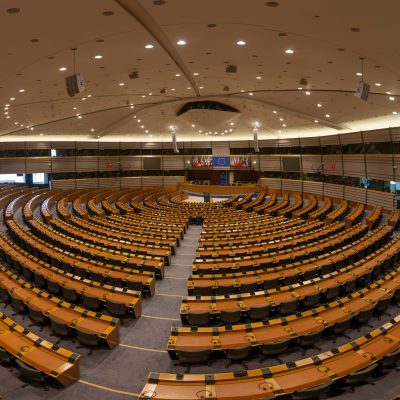Who Will Cope with the Post-Brexit Resentment?

The 27 member states were worried about being divided and having a weak bargaining position, which would lead to excessive concessions to the UK. It would ultimately convince other member states to follow the UK. The opposite has been true. The EU is first and foremost a legal construction, with unity amongst the EU27 based on legal discipline and no cherry picking between rights and obligations. The UK has little leeway in bilateral talks and needs to conform with the EU legal framework and conditions for exiting, transitioning, and establishing the new relationship. Exiting comes with financial commitments (such as the “Exit Bill”), diverging from EU regulation means bringing back border control and additional cost for trade, and withdrawing from the Custom Union means negotiating new rules of origin with third countries.
Contrary to what is frequently said, it is not even clear that the post-Brexit talks will be a hotbed of divisions between the EU27. In FTA negotiations, the most contentious issue between EU member states is usually the level of tariffs and quotas applied to each product, as each country has specific defensive interests and pushes to protect them. However, for now, both sides would favour a zero tariff approach for goods. Nor should access to the Single Market for services be such a controversial issue for the EU27, as it will largely depend on the UK’s acceptance of EU regulation and, in the case of financial services, European supervision.
Rather than a negotiation between the UK and the EU27, Brexit is a complex domestic UK negotiation on a trade-off between the recovery of political sovereignty and the high economic cost of losing access to the Single Market.
London engaged in the withdrawal talks, ready to play it hardball, with the clear objective to “take back control” and strict bargaining red lines (leaving the Single Market and the Customs Union, no more freedom of movement, no jurisdiction of the ECJ, and no substantial contributions to the EU budget). But it is not easy to clarify post-Brexit trade priorities when the red lines conflict so much with the overall objective. Developing an autonomous and more ambitious trade policy (objective) outside the Custom Union and the Single Market (red line) is more challenging than hard-line Brexiters expected. Key trade partners have already indicated that they value the UK market less outside the EU than inside, and want to see what is left of the UK’s access to the Single Market before engaging seriously in bilateral trade talks with London. Moreover, such free trade agreements are also notoriously light on services.
Any ambitious free-trade agreement with the EU would take years to complete and would require an extension of the transition period beyond December 2020. This would put the UK in the increasingly uncomfortable position of a rule-taker with no “British rebate” for its contribution to the new 2021-2027 EU budget. To avoid a “no deal” by the end of 2020 and going back to WTO terms, the most credible option at this stage would rather be a minimalistic economic deal. But, once again, reduced access to the Single Market will narrow the attractiveness of the British market and cap the ambition of a “Global Britain” signing ambitious FTAs worldwide.
Squaring the circle has never been so challenging. Negotiations rage between Theresa May’s cabinet members and within the Conservative Party, as well as the Labour Party. But the clock continues to tick, and the transition period will only give a short additional delay. So far the absence of domestic trade-off is bringing everybody to the cliff-edge.
Yet, any adverse economic consequence of Brexit will be blamed on the EU. Growing resentment amongst British citizens could then become toxic for both domestic politics and the relationship between the UK and the EU and should be anticipated. It would be better to have the Congress of Vienna than the Treaty of Versailles.




